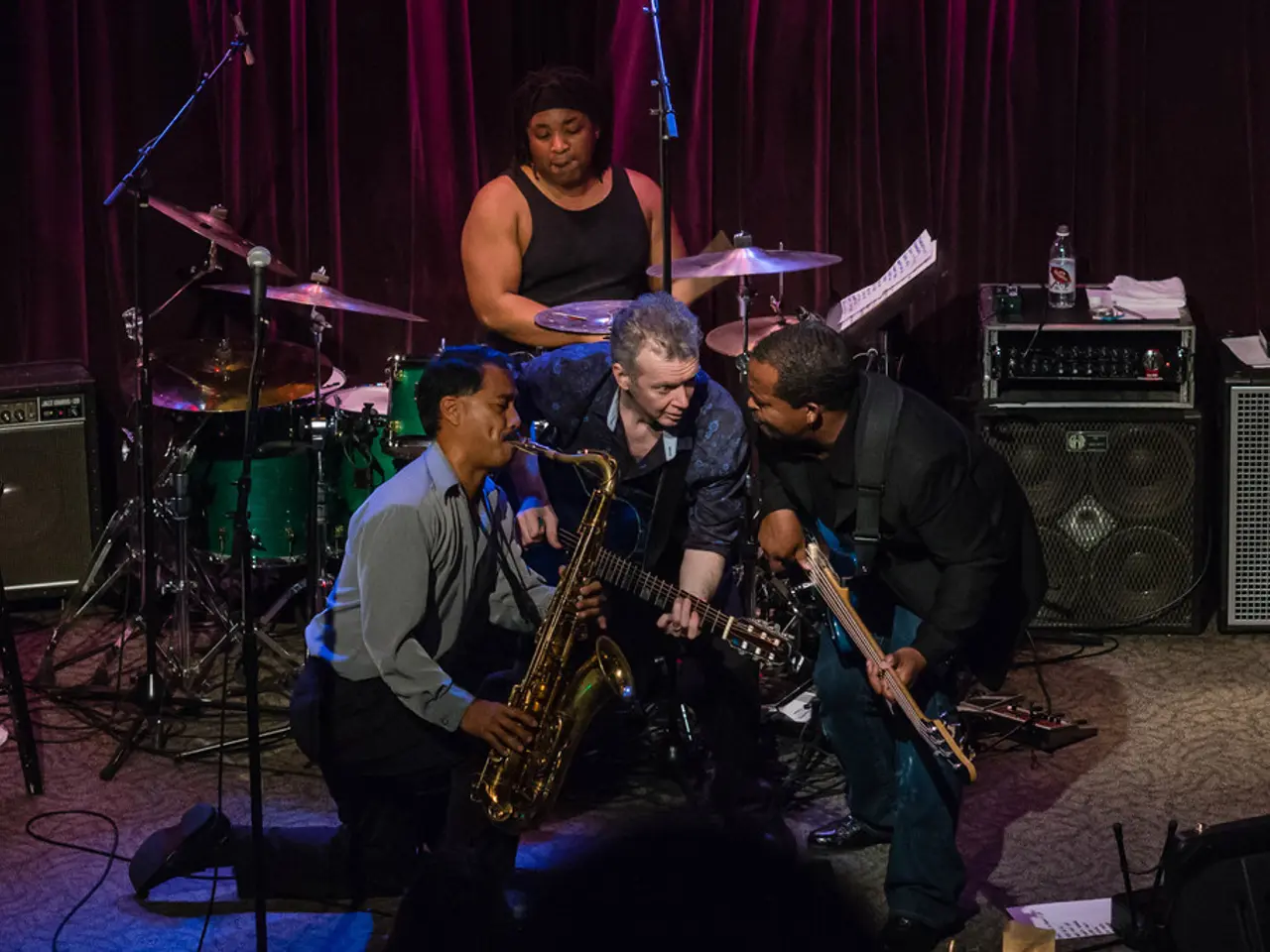Music Production Insights: The Role of a Sound Engineer Unraveled
Revolutionizing Music Engineering: The Role of Cloud-Based Audio Production
Cloud-based audio production is transforming the way music teams collaborate, revolutionizing the field of music engineering. This innovative approach allows engineers and artists to work together seamlessly, regardless of geographical location, making it easier to bring together diverse talents and perspectives.
Effective communication and collaboration are the cornerstones of a seamless workflow in music engineering. Enhanced digital audio workstations (DAWs) with AI capabilities are gaining traction, helping to streamline the production process and ensuring all sound elements are synchronized with visual content.
Being adaptable and patient is essential as music engineers balance technical constraints with artistic desires. Hands-on experience is invaluable in this field. Consider pursuing internships with record labels or studios to learn directly from professionals and build a portfolio of original mixes and sound designs.
The Essential Career Path for a Music Engineer
- Formal Education Most employers prefer candidates to have at least a bachelor’s degree in fields such as audio engineering, music production, sound design, or a related music discipline. These degree programs typically cover music theory and history, audio engineering principles, digital audio software and sound editing, acoustics and recording technology, studio equipment and maintenance, and music industry business aspects such as copyright law and marketing.
- Hands-on Training and Internships Gaining practical experience is crucial. This can be achieved through internships or apprenticeships at recording studios, radio stations, or with established producers, or by volunteering or working on personal projects to build a portfolio.
- Certification and Specialized Courses Certificate programs in music or audio production can supplement a degree or serve as an alternative path. Such programs usually take from six months to a year and offer focused skills training on audio production, talent management, and advanced technical tools.
- Continuous Learning and Portfolio Development Music engineering is a highly technical, fast-evolving field requiring continuous learning through experimenting with new audio software and technology, building and maintaining an online portfolio or social media presence showcasing work, networking with industry professionals, and staying updated on industry standards and trends.
In summary, a successful music engineer typically follows a path of obtaining formal education in audio or music production, supplemented by practical internships and certifications, combined with lifelong learning and portfolio development to stay relevant in the industry. Engaging in comprehensive project planning, setting clear goals, effective communication with artists, and building a strong working relationship with producers can lead to long-term partnerships that enhance career opportunities.
[1] University of California, Los Angeles [2] Berklee College of Music [3] The Institute of Audio Research
- In the world of music engineering, pursuing a degree in fields like audio engineering, music production, sound design, or related music disciplines from institutions like the University of California, Los Angeles, Berklee College of Music, or The Institute of Audio Research can provide a strong foundation.
- For hands-on experience, music engineers can participate in internships or apprenticeships at studios, radio stations, or with producers, or work on personal audio projects to build a portfolio.
- Developing a career in music engineering often involves acquiring certifications in a specialized field or enrolling in additional courses to improve audio production, talent management, and technical skills.
- To stay current in this rapidly evolving field, musicians should continuously learn by experimenting with new audio software and technology, maintaining an online portfolio or social media presence, networking with industry professionals, and keeping abreast of industry trends and standards.
- Effective collaboration is key in music engineering, enabling engineers and artists to seamlessly work together through cloud-based audio production tools like audio interfaces, microphones, and digital audio workstations.
- Investment in technology, such as high-quality audio interfaces, microphones, and software for mixing, recording, and music production, is essential for musicians to compete in the entertainment industry and enhance their lifestyle as professionals.




